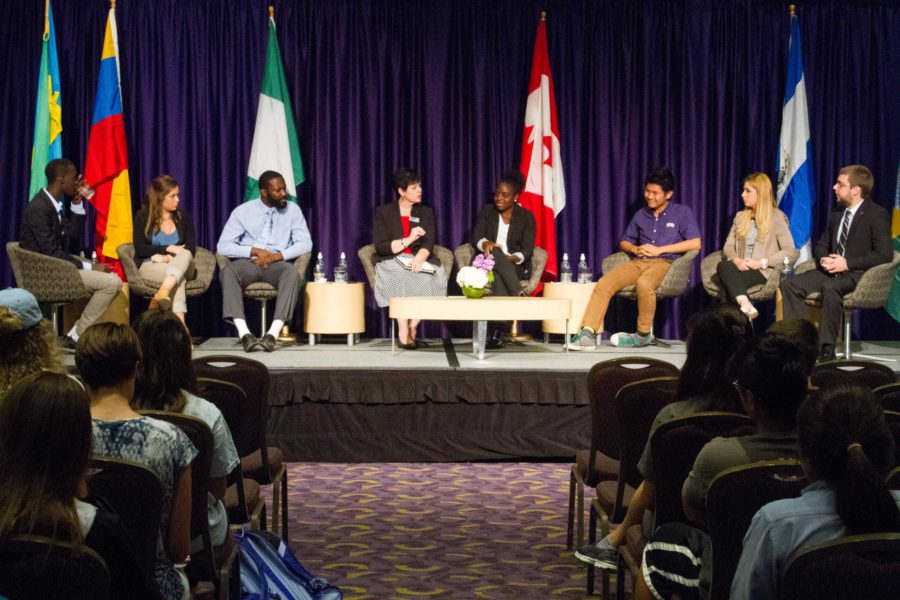They came from different countries, but all agreed the ramifications of the November election will extend beyond the United States. “Whoever wins needs to have an understanding of why immigration occurs,” said Aranxta Soto, a Venezuelan student studying at TCU. She was part of a panel of international students discussing the presidential election and issues like immigration. About 60 people attended the discussion, which was sponsored by International Student Services and the Department of Journalism. In addition to Sota, the panel included: Yannick Tona of Rwanda; Ohimai Ojeikere of Nigeria; Clemence Paiement of Haiti and Canada; Phat Do of Vietnam; Samira Jubis of El Salvador; and Wilson Silva of Brazil. The students discussed issues raised by Donald Trump and Hillary Clinton, as well how their countries view the election. Dr. Kristie Bunton, dean of the Bob Schieffer College of Communication, moderated the discussion. Jubis said the election, to her, is not about gender but about the weighty responsibilities of the office. If Clinton wins “her task would be to work with Congress,” which is fractured, she said. “We don’t only have two main parties, but there’s also segregation within the parties.” Paiement, speaking for her native Haiti and Canada, said Haitians have a bad history with the Clintons, but for Canada electing a woman is considered a big deal. Nigerians want the next president to combat terrorism, said Ojeikere. He also said the president should be willing to help Nigeria grow its fledgling democracy. Commenting on media coverage, Tona said the news media had lost its place as a check and balance. Soto criticized the media for focusing on how the candidates attack each other instead of policies issues. Soto said he believes the focus is on the attacks because they generate ratings. Do questioned claims of election fraud, which the Trump campaign has used as a talking point for weeks. “The election is not rigged,” said Do. “If it was rigged, there’s no reason why the Obamas would try so hard to campaign. They look seriously scared” of a Trump presidency. Silva said both Brazil and the U.S. have significant income inequality. He said political divisions in Brazil caused people to make rash decisions about who they supported. He worried Americans could be doing the same. All the panelists urged voters to cast their ballots. “With great power comes great responsibility,” said Ojeikere. “America is still a beacon of light to everyone.” Paiement dismissed the notion that the U.S. is lacking. “Your country is great, ” Pavement said, “so don’t let no one tell you to “Make America Great Again”.”
Categories:
International Students Perspectives on 2016 Presidental Election
Published Oct 27, 2016
International Students Discussion Panel (Photo courtesy – Sam Bruton)
Tags:
More to Discover







